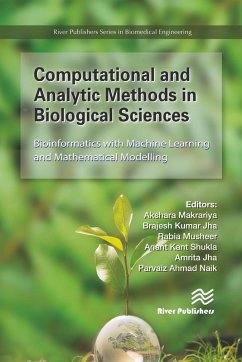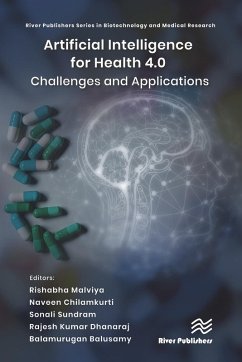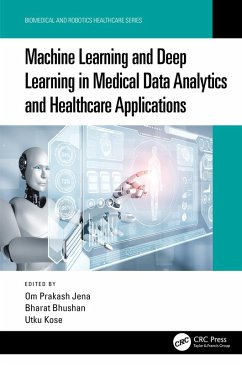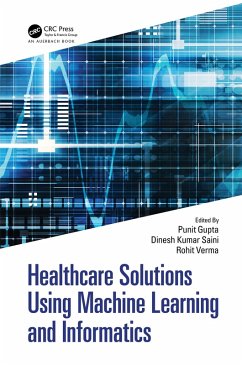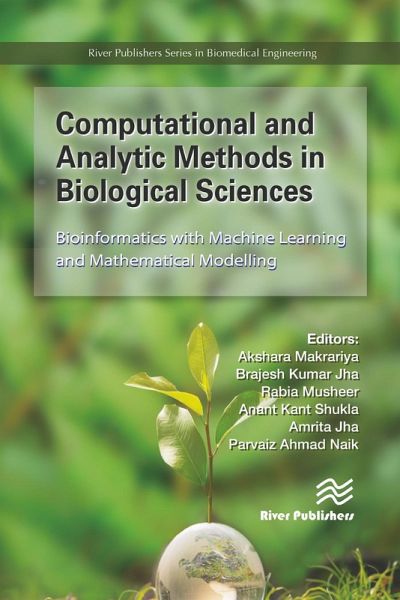
Computational and Analytic Methods in Biological Sciences (eBook, ePUB)
Bioinformatics with Machine Learning and Mathematical Modelling
Redaktion: Makrariya, Akshara; Naik, Parvaiz Ahmad; Jha, Amrita; Shukla, Anant Kant; Musheer, Rabia; Jha, Brajesh Kumar
Versandkostenfrei!
Sofort per Download lieferbar
104,95 €
inkl. MwSt.
Weitere Ausgaben:

PAYBACK Punkte
52 °P sammeln!
Despite major advances in healthcare over the past century, the successful treatment of cancer has remained a significant challenge, and cancers are the second leading cause of death worldwide behind cardiovascular disease. Early detection and survival are important issues to control cancer. The development of quantitative methods and computer technology has facilitated the formation of new models in medical and biological sciences. The application of mathematical modelling in solving many real-world problems in medicine and biology has yielded fruitful results. In spite of advancements in ins...
Despite major advances in healthcare over the past century, the successful treatment of cancer has remained a significant challenge, and cancers are the second leading cause of death worldwide behind cardiovascular disease. Early detection and survival are important issues to control cancer. The development of quantitative methods and computer technology has facilitated the formation of new models in medical and biological sciences. The application of mathematical modelling in solving many real-world problems in medicine and biology has yielded fruitful results. In spite of advancements in instrumentations technology and biomedical equipment, it is not always possible to perform experiments in medicine and biology for various reasons. Thus, mathematical modelling and simulation are viewed as viable alternatives in such situations, and are discussed in this book.
The conventional diagnostic techniques of cancer are not always effective as they rely on the physical and morphological appearance of the tumour. Early stage prediction and diagnosis is very difficult with conventional techniques. It is well known that cancers are involved in genome level changes. As of now, the prognosis of various types of cancer depends upon findings related to the data generated through different experiments. Several machine learning techniques exist in analysing the data of expressed genes; however, the recent results related with deep learning algorithms are more accurate and accommodative, as they are effective in selecting and classifying informative genes. This book explores the probabilistic computational deep learning model for cancer classification and prediction.
The conventional diagnostic techniques of cancer are not always effective as they rely on the physical and morphological appearance of the tumour. Early stage prediction and diagnosis is very difficult with conventional techniques. It is well known that cancers are involved in genome level changes. As of now, the prognosis of various types of cancer depends upon findings related to the data generated through different experiments. Several machine learning techniques exist in analysing the data of expressed genes; however, the recent results related with deep learning algorithms are more accurate and accommodative, as they are effective in selecting and classifying informative genes. This book explores the probabilistic computational deep learning model for cancer classification and prediction.
Dieser Download kann aus rechtlichen Gründen nur mit Rechnungsadresse in A, B, BG, CY, CZ, D, DK, EW, E, FIN, F, GR, HR, H, IRL, I, LT, L, LR, M, NL, PL, P, R, S, SLO, SK ausgeliefert werden.




